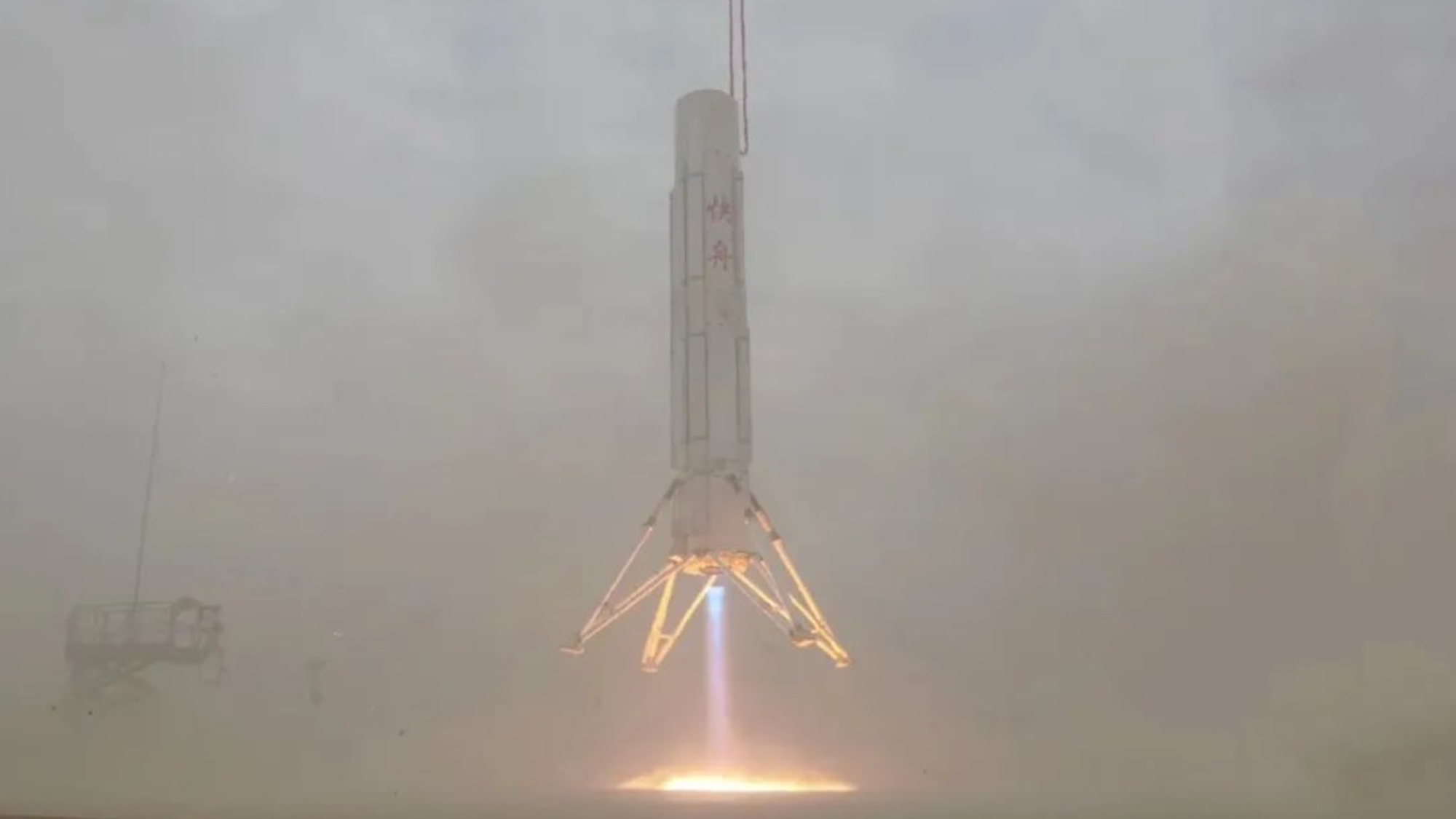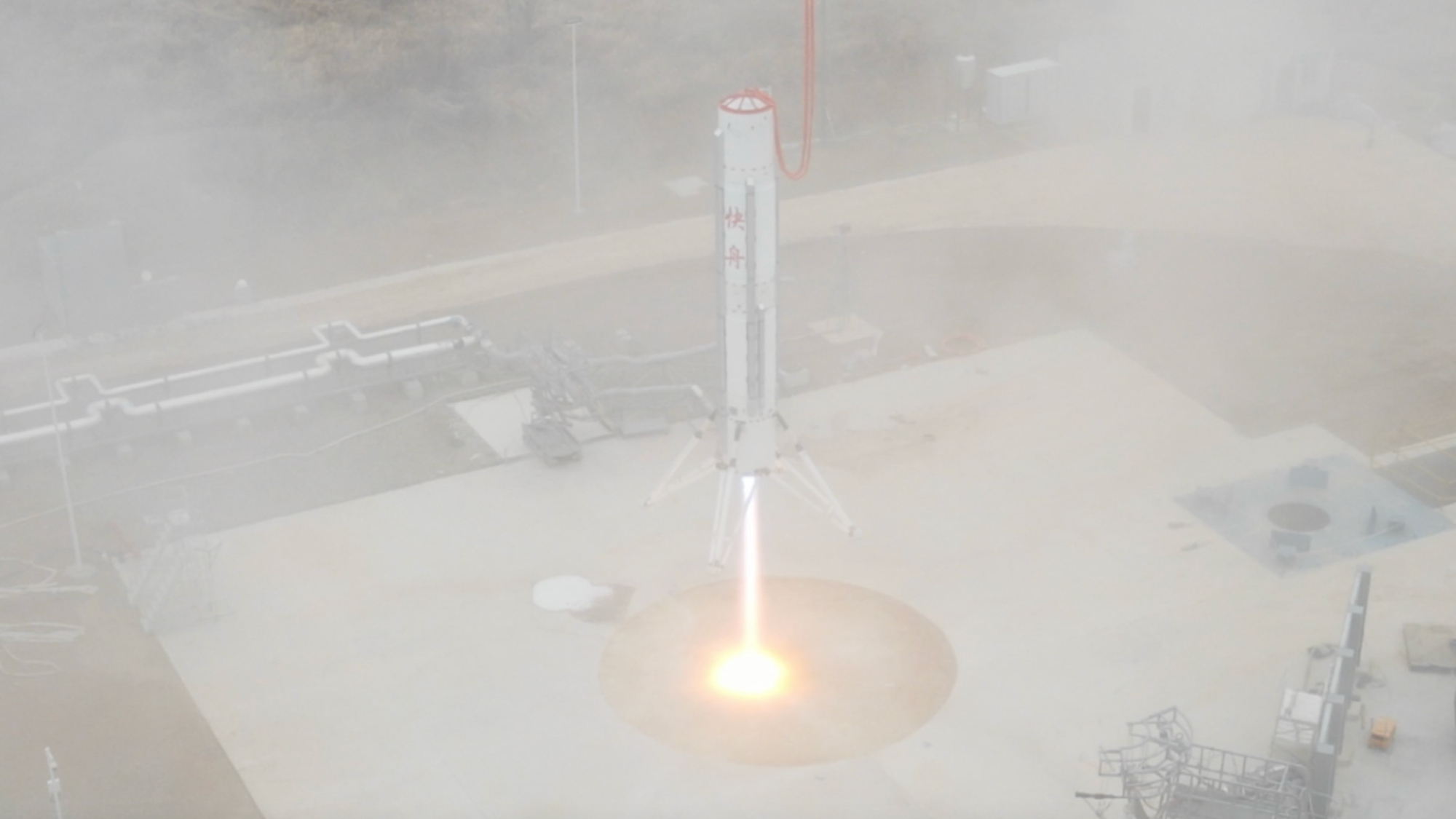Chinese company's reusable rocket prototype aces launch-and-landing test (photos)
China is intensifying its pursuit of rocket reusability.

A Chinese state-owned company has successfully pulled off a brief launch and landing test as it aims to build a reusable rocket.
The Kuaizhou reusable technology test rocket lifted off from a pad at test facilities on Jan. 26, hovering in the air for nine seconds before landing back at the takeoff area. The flight lasted 22 seconds.
The test was conducted by Expace, also called CASIC Rocket Technology Company, which operates under CASIC, a giant Chinese state-owned defense and space contractor. CASIC plays a role in China's state space industry but is aiming to develop its own launch services, separate from its sister corporation CASC, which makes China's Long March rockets.
Related: Watch Chinese startup Landspace launch and land reusable rocket prototype for 1st time (video)
Expace is known for its expendable Kuaizhou solid rockets, which have conducted two orbital launches this year already. But the company stated in recent years that it's adding reusable methane-liquid oxygen rockets to its ambitions.
Footage of last month's brief hop test posted via Expace's WeChat channel shows the prototype rocket with pre-deployed landing legs and attached to what is likely a crane. The connecting cable appears slack during the test.
"The success of this test laid a solid foundation for the development of the Kuaizhou series of reusable liquid oxygen methane launch vehicles," Expace said in its press statement.
Breaking space news, the latest updates on rocket launches, skywatching events and more!
Expace provided few details about the test. It did not reveal the engine used and did not provide plans and timelines for future rocket testing. It has, however, been conducting hot-fire tests of the various methane engines it is developing.
The test is the latest in a string of "hops" by a range of companies in China. The country's government opened the space sector to private capital in 2014, leading to the emergence of a flurry of startups. A number of these are now launching, or are close to launching, liquid propellant rockets with potential reusability.
Beijing-based iSpace performed a pair of longer duration, higher altitude tests late last year, with its vehicle translating to a separate landing target during the latter trial. Fellow startup Landspace then conducted its own hop test with a stainless steel methane prototype rocket at Jiuquan in January this year, reaching an altitude of 1,150 feet (350 meters). Landspace aims to launch the full Zhuque-3 rocket — whose first stage will be reusable, like that of SpaceX's Falcon 9 — in 2025.
Another state-owned spinoff, CAS Space, is aiming to launch its reusable Kinetica-2 rocket in 2025 and has used a jet-powered prototype to test the guidance, navigation and control systems needed for rocket landings.
Commercial firm Galactic Energy performed a similar test last summer. The company aims to perform the first launch of the Pallas-1 kerosene-liquid oxygen rocket late this year. While that will be an expendable flight, Galactic Energy aims to land and reuse the first stage in the future.

Andrew is a freelance space journalist with a focus on reporting on China's rapidly growing space sector. He began writing for Space.com in 2019 and writes for SpaceNews, IEEE Spectrum, National Geographic, Sky & Telescope, New Scientist and others. Andrew first caught the space bug when, as a youngster, he saw Voyager images of other worlds in our solar system for the first time. Away from space, Andrew enjoys trail running in the forests of Finland. You can follow him on Twitter @AJ_FI.

